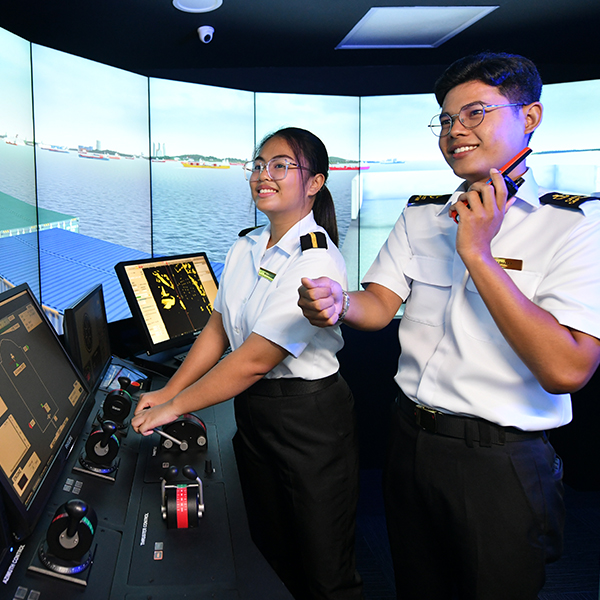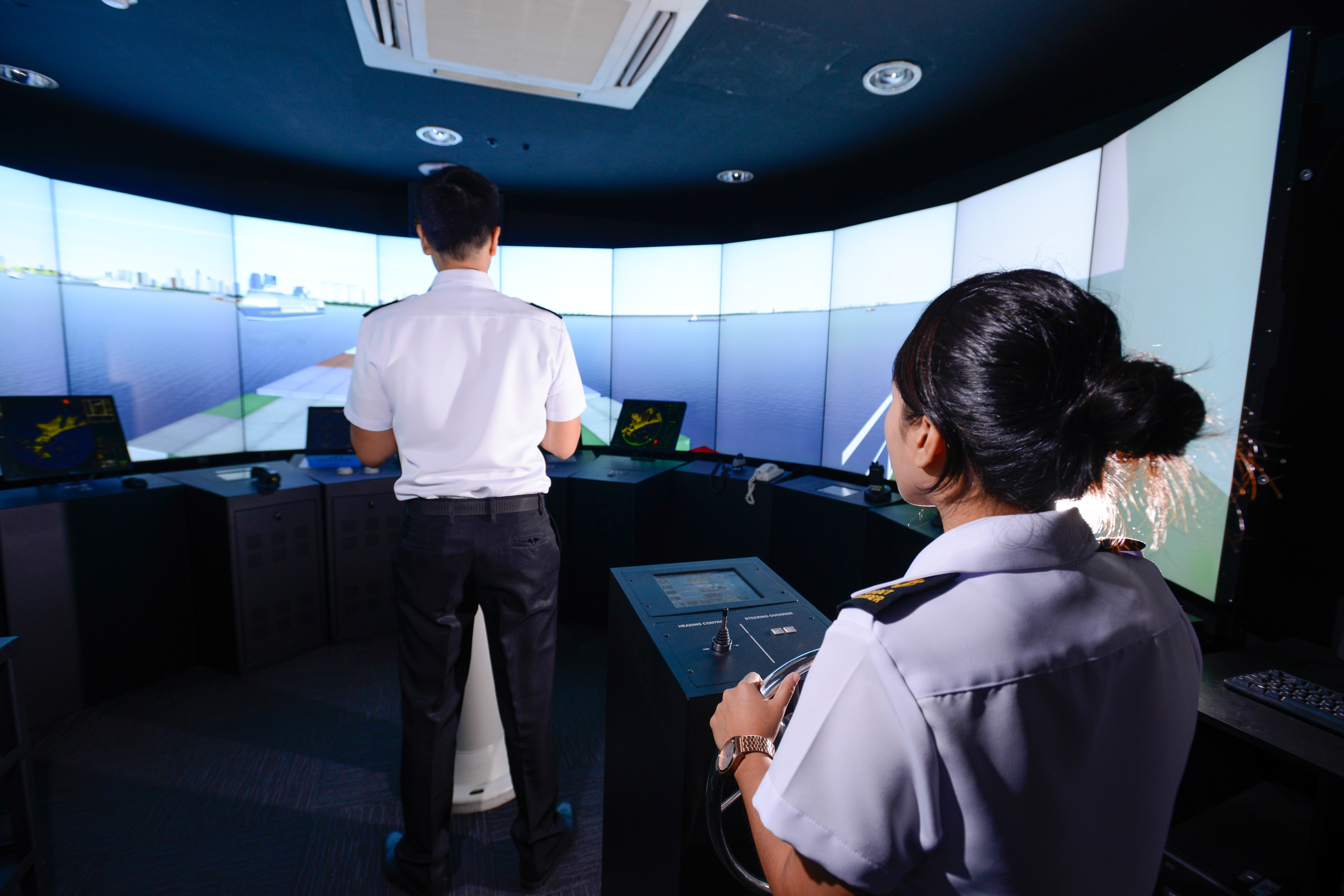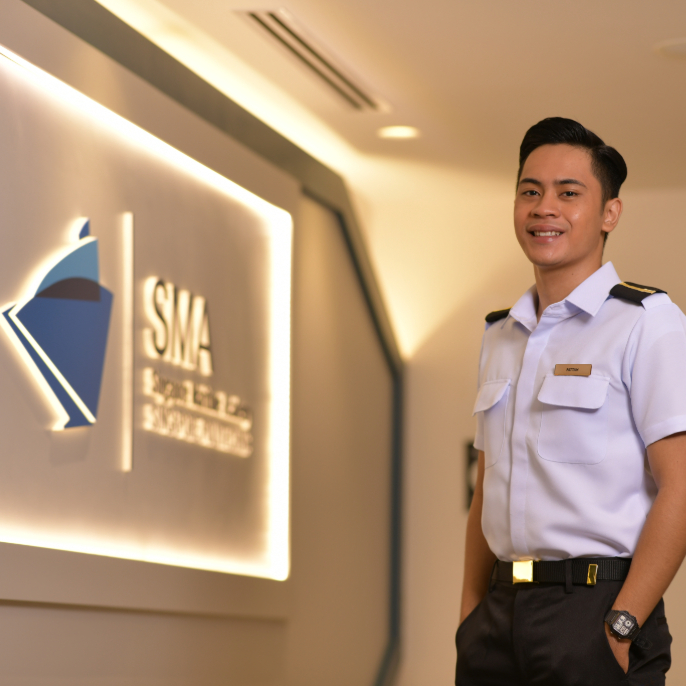Embark on an exciting voyage to navigate the world’s oceans with the Diploma in Nautical Studies. Earn your Class 3 Deck Certificate of Competency (CoC), your first professional sea-going qualification. You’ll be equipped with navigation, seamanship, and leadership skills, and hands-on sea experience. Take the helm of your maritime career and chart a course towards becoming a confident, distinguished ship master.
Please note: Course structure is subject to change.
Electives
The SP elective framework offers students options to pursue their passion and/or meet different career needs, and is an integral part of the holistic education we seek to provide to our students.
Learn about SP Elective Framework
The Common Core Curriculum (CCC) prepares you for a changing world with essential human and digital skills. Through its 10 modules, the CCC also provides a wide learning experience to examine local and global issues based on the Sustainable Development Goals (SDGs). These modules help you understand real-world issues and the impact on different communities, and equip you with skills to create a better, sustainable Singapore and world.
Learn about Common Core Curriculum

What are the eligibility requirements for nautical studies?
You must meet the following criteria to qualify for the Diploma in Nautical Studies:
If you love hands-on work and the idea of being out at sea, nautical studies is for you.
It’s great for adventurous, resilient, detail-oriented students who are good at teamwork and adaptable. These skills are vital for managing maritime operations, from planning voyages to ensuring ship safety. You’ll navigate, manage cargo, and oversee smooth operations in this field.
SP offers many scholarships to recognise talent and service, from Year 0 to after graduation. These scholarships provide tuition fee waivers and chances to represent SP. They are awarded for academic excellence, contributions to arts or sports, and community service. Edusave awards and external sponsorships are also available.

Nautical studies at SP prepares me for the future.
Learning the ropes of the maritime industry requires hands-on practice.
At SP, you’ll train at the Integrated Simulation Centre (ISC), which houses advanced simulators using virtual reality-based training tools and immersive environment, equipping you to handle various scenarios at sea. The Full-Mission Ship-handling Simulator enables you to practice navigation on simulated bridges. The waterfront facility, SP Poly Marina, is equipped with facilities necessary for training in basic safety, practical seamanship, proficiency in survival craft and other related maritime courses.
Nautical studies at SP prepares me for Singapore.
The maritime industry powers global trade, with Singapore as a leading hub. In 2025, AI, automation, and digitalisation are driving smart ports and automated ships. Emphasis on sustainability and decarbonisation is transforming the industry. SP's nautical studies prepares you for shore-based roles like marine pilots, and commercial and operational positions, equipping you with skills beyond traditional sailing.
Nautical studies at SP prepares me for the world.
At nautical studies in SP, you’ll acquire a broad skill set, making you versatile and adaptable to diverse fields in the nautical sector, such as:
This comprehensive training prepares you to tackle complex challenges and excel in the nautical sector, ensuring that you’ll be in-demand globally.
The nautical studies course includes a 12-month sea-training phase, the second phase of the three-part program at SP. You’ll spend a minimum of 12 months at sea, serving as a cadet officer and preparing for the role of a Navigating Officer.
Students have completed their training with companies like Pacific International Lines (PIL), Shell Shipping, NYK Line, Eastern Pacific Shipping, and Mistui OSK Lines (MOL).
Good on-the-job training during cadetship onboard international sea-going vessels prioritizes meaningful work, learning opportunities, and professional growth, supported by clear objectives and mentorship.
Overseas exposure is vital in a global city like Singapore. Nautical studies students gain first-hand experience during the 12-month sea training cadetship, working onboard vessels and learning from international industry professionals. This exposure enhances global perspectives and career prospects.
SP diplomas are recognised by over 150 universities, some of which offer more than a year’s advanced standing. Graduates receive an SP diploma and the Class 3 Certificate of Competency (COC) qualifying you to sail as a certified sea-going officer.
Benefit from financial incentives from government agencies and industry partners as you join the workforce with companies such as Pacific International Lines, BP and Mistui OSK Lines (MOL). Both paths offer opportunities for success.
Graduates from nautical studies often continue their education in specialized fields or areas that build on their diploma knowledge. With a DNS diploma, you can gain direct entry into relevant degree courses overseas. You can pursue a Bachelor’s degree in Navigation & Maritime Science Offered by the University of Plymouth (UK), which is useful and beneficial for a shore-based career path.
Our partnerships with international universities provide direct entry into various maritime programs. Graduates with a GPA above 3.0 may enter the third year of Plymouth University’s maritime degree program. For a full list of degree options and advanced standings, visit the Advanced Standing Database.
If you’re preparing for university and want to make the most of your diploma time, an SP diploma can let you fast-track your education by 0.5-2 years!
Advance your nautical career with an SP diploma, qualifying you for a Class 3 Certificate of Competency (CoC) to work internationally as a sea-going officer. These certifications boost your career progress. Obtain a Class 1 CoC to become a ship captain and gain direct entry into a maritime-related Master’s degree.
